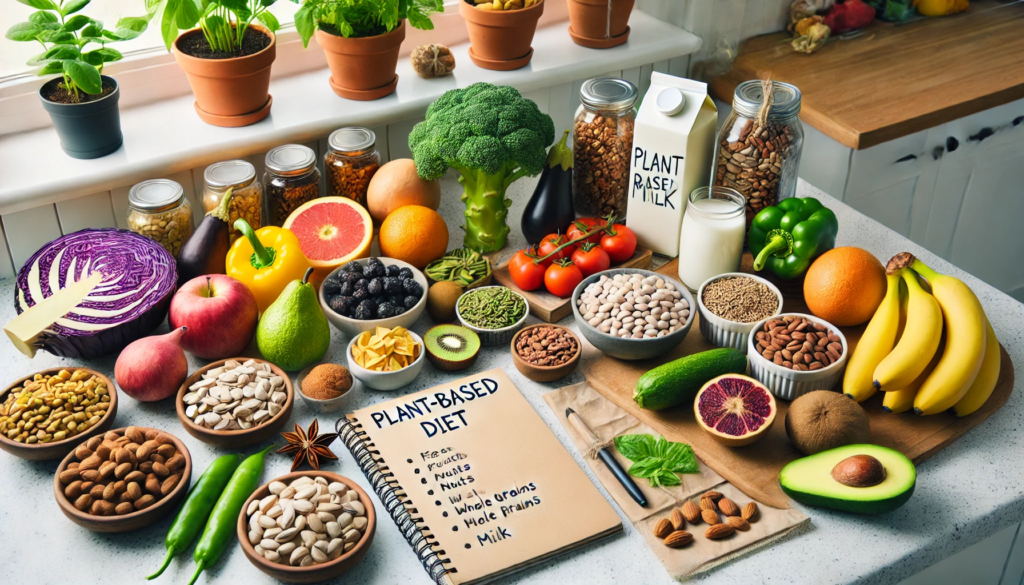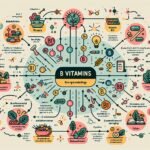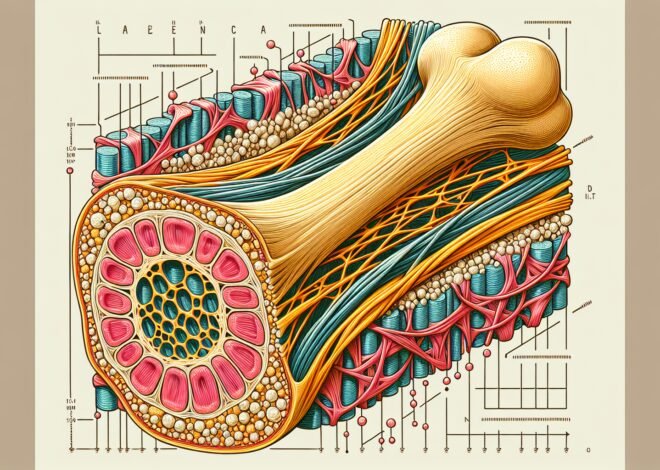
Top 20 Tips for Starting a Plant-Based Diet
Adopting a plant-based diet can improve your health, reduce your environmental impact, and promote a compassionate lifestyle. Whether you’re transitioning gradually or diving right in, these 20 tips will help you start a plant-based diet and make it sustainable.
1. Start Slowly
Ease into a plant-based diet by gradually increasing your intake of plant foods while reducing animal products. Begin by incorporating one or two plant-based meals each day, then work your way up.
2. Focus on Whole Foods
Base your diet on whole, unprocessed foods like vegetables, fruits, whole grains, legumes, nuts, and seeds. These foods are nutrient-dense and provide the vitamins, minerals, and fiber your body needs.
3. Plan Your Meals
Planning your meals in advance ensures that you have all the ingredients needed for a balanced plant-based diet. It also helps you avoid unhealthy, last-minute food choices.
4. Experiment with Meat Alternatives
Explore plant-based alternatives for meat, such as tofu, tempeh, seitan, and legumes. These options can be used in place of animal products in many traditional recipes.
5. Incorporate a Variety of Protein Sources
Ensure you’re getting enough protein by including a variety of plant-based protein sources like lentils, chickpeas, beans, nuts, seeds, and whole grains in your diet.
6. Include Leafy Greens
Leafy greens like kale, spinach, and collard greens are rich in iron, calcium, and other essential nutrients. Include them in salads, smoothies, and cooked dishes for added nutrition.
7. Replace Dairy with Plant-Based Alternatives
Switch to plant-based milk alternatives such as almond, soy, oat, or coconut milk. You can also find plant-based yogurts, cheeses, and creamers to replace traditional dairy products.
8. Prioritize Whole Grains
Include whole grains like quinoa, brown rice, oats, and barley in your diet. These grains provide fiber and essential nutrients while keeping you fuller for longer.
9. Use Herbs and Spices for Flavor
Herbs and spices add flavor and nutrition to your meals. Experiment with different combinations to make your plant-based dishes exciting and delicious.
10. Pay Attention to Nutrient Intake
Make sure you’re getting enough essential nutrients like vitamin B12, iron, omega-3 fatty acids, and calcium. Consider supplements or fortified foods if needed.
11. Try Plant-Based Snacks
Keep plant-based snacks on hand, such as nuts, seeds, fruit, or energy bars. This ensures you always have a healthy option available when you’re hungry.
12. Explore Different Cuisines
Plant-based dishes are prominent in many cuisines, such as Indian, Mediterranean, Middle Eastern, and Mexican. Explore these cuisines for inspiration and variety.
13. Batch Cook for Convenience
Prepare larger quantities of food in advance, like soups, stews, and grain-based dishes. Store portions in the fridge or freezer for quick, easy meals.
14. Read Food Labels
Not all products labeled “plant-based” are healthy. Check ingredient lists for added sugars, refined oils, and artificial additives. Focus on whole food options.
15. Make Simple Ingredient Swaps
Start with small swaps, like using avocado instead of butter or replacing eggs with flaxseed or chia seeds in baking. These changes can make the transition easier.
16. Stay Hydrated
Drink plenty of water and include hydrating foods like fruits and vegetables in your diet. Staying hydrated supports digestion and overall health.
17. Find a Community or Support Group
Connect with others who are also following a plant-based diet. Online communities, social media groups, or local meetups can provide valuable support and recipe ideas.
18. Be Prepared for Social Situations
When dining out or attending events, look for plant-based menu options or bring a dish to share. It’s helpful to know what’s available to avoid feeling limited.
19. Keep an Open Mind
Experiment with new foods, flavors, and cooking methods. Transitioning to a plant-based diet is a journey, and trying different foods will help you find what you enjoy.
20. Listen to Your Body
Pay attention to how your body feels on a plant-based diet. Adjust your food choices and portion sizes based on your energy levels, cravings, and nutritional needs.
Conclusion
Starting a plant-based diet can be a rewarding change that promotes health, sustainability, and compassion. By following these 20 tips, you can ease the transition and make plant-based eating an enjoyable and sustainable part of your lifestyle. Focus on whole foods, plan your meals, and embrace variety to ensure you get the nutrients you need while enjoying delicious, plant-based meals.
FAQ
1. What is a plant-based diet?
A plant-based diet focuses on eating foods derived from plants, such as vegetables, fruits, whole grains, legumes, nuts, and seeds. It minimizes or eliminates animal products, but some people may still include small amounts of animal products on occasion.
2. Will I get enough protein on a plant-based diet?
Yes, you can get enough protein from a variety of plant-based sources, including lentils, chickpeas, beans, tofu, tempeh, nuts, seeds, and whole grains like quinoa. Combining different protein sources throughout the day ensures you meet your protein needs.
3. What are some good plant-based alternatives to dairy?
There are many dairy-free alternatives, such as:
- Milk: Almond, soy, oat, and coconut milk
- Yogurt: Plant-based yogurts made from almond, soy, or coconut
- Cheese: Cashew cheese, nutritional yeast, or other plant-based cheese substitutes
4. How can I ensure I get enough iron and calcium?
Include plant-based sources of iron like spinach, lentils, quinoa, pumpkin seeds, and tofu. To boost absorption, pair iron-rich foods with vitamin C-rich foods like citrus fruits or bell peppers. For calcium, consume leafy greens, fortified plant-based milk, almonds, and chia seeds.
5. Should I take supplements on a plant-based diet?
While a balanced plant-based diet can provide most nutrients, some nutrients like vitamin B12, vitamin D, and omega-3 fatty acids may need supplementation. Consult with a healthcare professional for personalized advice.
6. How can I handle social situations on a plant-based diet?
When dining out, research the restaurant menu in advance for plant-based options, or call ahead to ask if they can accommodate your needs. When attending social events, consider bringing a plant-based dish to share so you have something you know you can eat.











